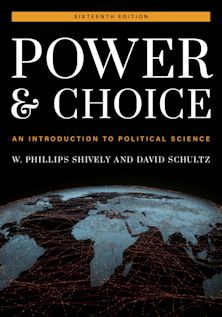Celebrities in American Elections
Case Studies in Celebrity Politics
Celebrities in American Elections
Case Studies in Celebrity Politics
This product is usually dispatched within 1 week
- Delivery and returns info
-
Free CA delivery on orders $40 or over
Description
Using a case study approach, Celebrities in American Elections contends that celebrities have the talent, fame, and resources to succeed in electoral politics. These factors account for the electoral victories of Ronald Reagan, Clint Eastwood, Fred Grandy, Sonny Bono, Jesse Ventura, Arnold Schwarzenegger, Al Franken, and Donald Trump. However, the author argues that these items are insufficient without a favorable political environment; as many celebrities have lost elections as have won them. They lose because their persona does not match the politics of their time, or they represent the minority party in a one party dominated district or state, or they advocate for unpopular policies. Among those that won, nearly half were elected by a plurality – not a majority – of voters. This does not suggest overwhelming public support for celebrity candidates despite their many advantages. With a few exceptions, celebrities that won tended to also win the fundraising battle, while celebrities that lost tended to raise less than their opponent – the normal laws of politics still apply. The celebrity factor, while helpful, does not fully explain why celebrities win or lose elections.
Table of Contents
Chapter 1: Celebrity Society
Chapter 2: Celebrity Politics
Chapter 3: Ronald Reagan
Chapter 4: Clint Eastwood
Chapter 5: Fred Grandy
Chapter 6: Sonny Bono
Chapter 7: Jesse Ventura
Chapter 8: Arnold Schwarzenegger
Chapter 9: Al Franken
Chapter 10: Donald Trump
Chapter 11: Reverse Migration and Celebrity Losers
Chapter 12: The Perils and Promises of Celebrity Politics
Product details
| Published | Sep 02 2022 |
|---|---|
| Format | Hardback |
| Edition | 1st |
| Extent | 256 |
| ISBN | 9781666923155 |
| Imprint | Lexington Books |
| Illustrations | 2 tables; 5 textboxes; |
| Dimensions | 237 x 158 mm |
| Publisher | Bloomsbury Publishing |
Reviews

ONLINE RESOURCES
Bloomsbury Collections
This book is available on Bloomsbury Collections where your library has access.


































